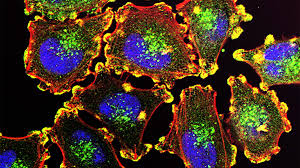13 August 2024 | Tuesday | News

Shanghai Junshi Biosciences Co., a leading innovation-driven biopharmaceutical company dedicated to the discovery, development, and commercialization of novel therapies, announced that the National Medical Products Administration (NMPA) has accepted for review the supplemental new drug application (sNDA) for toripalimab (trade name: TUOYI®, product code: JS001) for the first-line treatment of unresectable or metastatic melanoma.
Melanoma is the most malignant type of skin cancer. According to the 2022 GLOBOCAN Report, approximately 332,000 new melanoma cases and approximately 59,000 deaths were recorded globally that year. Though melanoma is relatively uncommon in China, its mortality rate is high (5,000 deaths amongst approximately 9,000 new cases in 2022) and its incidence rate is rising year by year. So far, anti-PD-1 monoclonal antibodies have only been approved for the second-line or beyond treatment of advanced melanoma in China, however, the first-line standard treatment of advanced melanoma is still dominated by traditional chemotherapy or targeted therapy (limited to patients with BRAF V600 mutation). Therefore, there is an urgent clinical need for first-line immunotherapy options for patients with advanced melanoma in China.
The sNDA is mainly based on the MELATORCH study (NCT03430297), a multi-center, randomized, open-label, positive-controlled Phase III clinical study. It is China’s first and only pivotal registrational clinical study of a PD-(L)1 inhibitor as a first-line treatment for advanced melanoma that has yielded positive results, and was designed to compare the efficacy and safety of toripalimab with dacarbazine for the first-line treatment of systemic treatment-naïve patients with unresectable or metastatic melanoma. The study was led by Principal Investigator Professor Guo Jun from Peking University Cancer Hospital in 11 clinical centers across the country.
In September 2023, MELATORCH’s primary endpoint of progression-free survival (“PFS,” based on independent radiological review) met the pre-defined efficacy boundary. The results showed that compared with dacarbazine, toripalimab as the first-line treatment for unresectable or metastatic melanoma significantly prolonged the PFS of patients. The safety profile of toripalimab is comparable to that of prior studies, and no new safety signals were identified. The detailed data of this study will be presented by Junshi Biosciences at an upcoming international academic conference.
Principal Investigator and Chairman of CSCO Experts Committee on Malignant Melanoma, Professor Jun GUO from Beijing Cancer Hospital, said, “Within the last 5 years, toripalimab has become the standard therapy for second-line and beyond salvage treatment of advanced melanoma in China, which significantly altered the treatment landscape and offered groundbreaking survival benefits to many Chinese patients. However, we also recognize that treating Chinese melanoma patients presents greater challenges than treating Caucasian melanoma patients. Thus, despite PD-1 inhibitors being approved internationally for first-line treatment of melanoma and even as adjuvant therapy for early-stage patients, no immune checkpoint inhibitor has yet been approved for these indications in China. The acceptance of toripalimab’s sNDA is proof of its value and importance in earlier line treatment. We eagerly anticipate its approval, as it would allow Chinese melanoma patients to benefit from immunotherapy even earlier.”
“In 2018, toripalimab made history as the first domestically developed anti-PD-1 monoclonal antibody approved for second-line and beyond treatment of advanced melanoma, leaving its brilliant mark in China’s pharmaceutical and biotech development,” General Manager and CEO of Junshi Biosciences, Dr. Jianjun ZOU, said. “Today, our efforts continue with the NMPA’s acceptance of the 12th sNDA for toripalimab, and toripalimab is poised to become China’s first immunotherapy for melanoma. We will work closely with regulatory authorities to provide better clinical treatments to patients as soon as possible.”
© 2026 Biopharma Boardroom. All Rights Reserved.